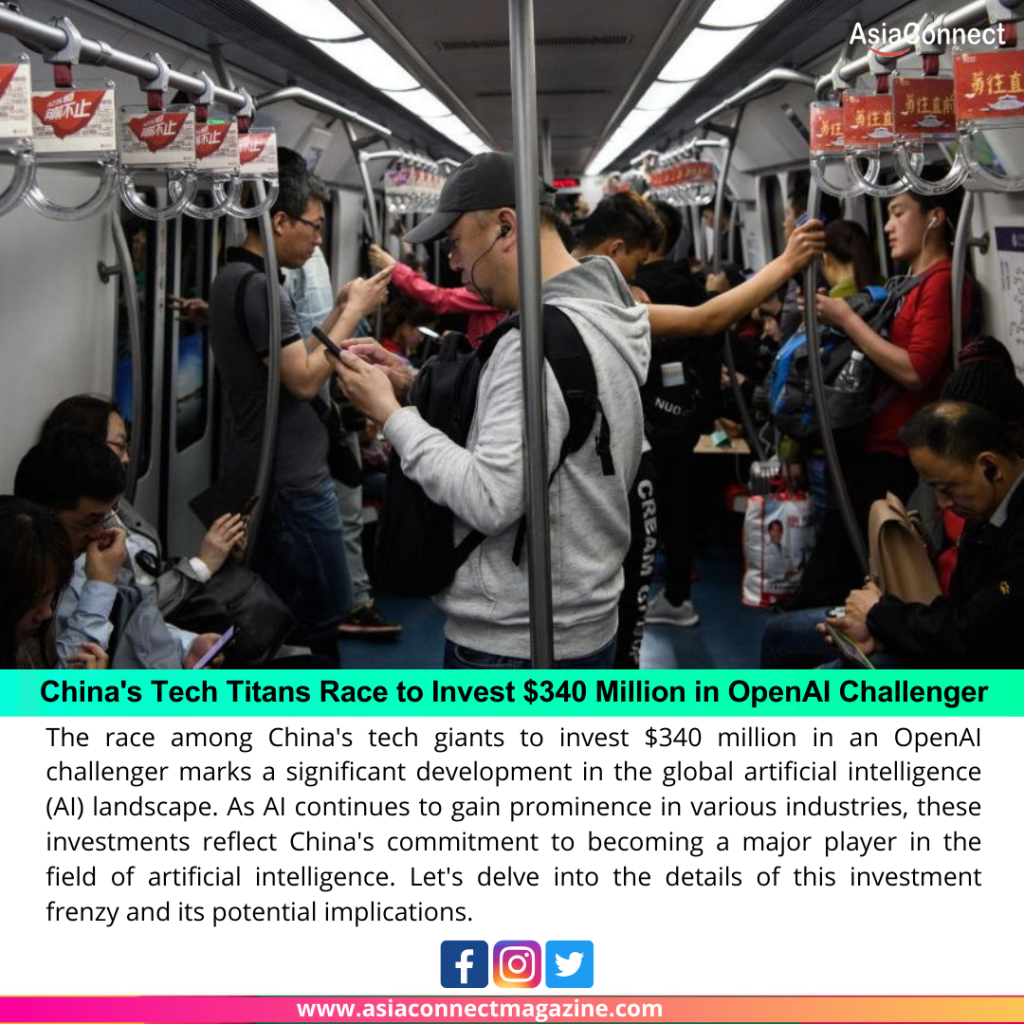
The race among China’s tech giants to invest $340 million in an OpenAI challenger marks a significant development in the global artificial intelligence (AI) landscape. As AI continues to gain prominence in various industries, these investments reflect China’s commitment to becoming a major player in the field of artificial intelligence. Let’s delve into the details of this investment frenzy and its potential implications.
The Investment Showdown:
China’s tech titans, including companies like Tencent, Alibaba, Baidu, and others, are no strangers to the world of AI. They have made substantial investments in AI research, development, and applications over the years. The recent scramble to invest a substantial sum in an OpenAI competitor underscores their determination to lead the AI revolution.
The $340 Million Investment:
The $340 million investment figure is a clear signal that these companies are willing to allocate significant resources to further AI research and development. By pooling their investments, these tech giants aim to create an entity that can compete on a global scale, potentially challenging the dominance of organizations like OpenAI and other leading AI research institutions.
OpenAI and Its Global Significance:
OpenAI, a renowned AI research organization based in the United States, has been at the forefront of AI advancements. It has developed state-of-the-art AI models, including GPT-3, and is known for its contributions to AI ethics and safety. OpenAI’s work has had a profound impact on AI research, and it is considered one of the leading organizations in the field.
Implications of the Investment:
- Global AI Leadership: The investment by China’s tech giants represents their ambition to take a leading role in AI research and development. This could potentially shift the balance of power in AI innovation away from traditional Western tech hubs.
- Increased Competition: The emergence of a well-funded Chinese AI research entity will increase competition in the AI field, which can drive innovation and accelerate technological advancements.
- Ethical and Regulatory Considerations: As China’s tech giants make significant investments in AI, there will be increased scrutiny and discussion around AI ethics, governance, and regulations. This is crucial for addressing concerns related to data privacy, algorithmic bias, and responsible AI deployment.
- Global Collaboration: The international nature of AI research means that collaboration between AI research entities worldwide is likely to continue. This collaboration can lead to the cross-pollination of ideas and expertise, fostering a more inclusive and diverse AI ecosystem.
- Market Impact: As AI technology becomes more advanced and widespread, it will impact various industries, from healthcare to finance, retail, and manufacturing. The investments in AI research will potentially give Chinese tech companies a competitive edge in these sectors.
- AI Talent Attraction: The growth of AI in China will likely attract top AI talent from around the world. China’s commitment to AI research and development, along with substantial funding, makes it an appealing destination for researchers and engineers.
- AI Policy and Strategy: Governments and policymakers around the world will need to develop and refine their AI policies and strategies, taking into account the evolving AI landscape, international collaboration, and competition.
Challenges and Considerations:
While the investment in AI research is promising, it also comes with challenges and considerations:
- Ethical Concerns: Ensuring that AI development aligns with ethical principles and safeguards against misuse remains a critical concern.
- Intellectual Property: Issues related to intellectual property rights and technology transfer may arise in the context of international collaboration.
- AI Talent Competition: The demand for AI talent may lead to increased competition for skilled professionals, potentially affecting wages and resource availability.
- Regulatory Harmonization: Ensuring that AI regulations and standards align across different regions and countries will be essential to facilitate international collaboration and responsible AI development.
In conclusion, China’s tech titans’ race to invest $340 million in an OpenAI challenger is a significant milestone in the global AI landscape. This investment reflects China’s ambition to become a major force in AI research and development, with potential implications for competition, collaboration, and ethical considerations in the field of artificial intelligence. As AI continues to evolve and shape various industries, it is essential for stakeholders, including governments, companies, and research organizations, to navigate the challenges and opportunities presented by this dynamic and transformative technology.




